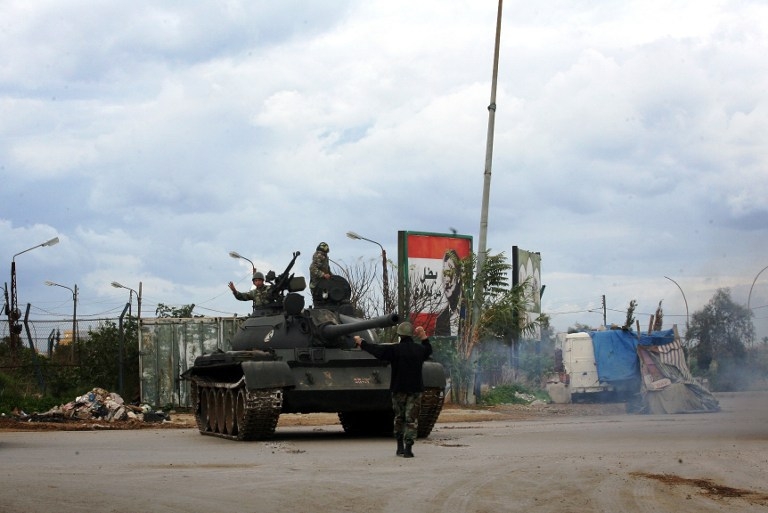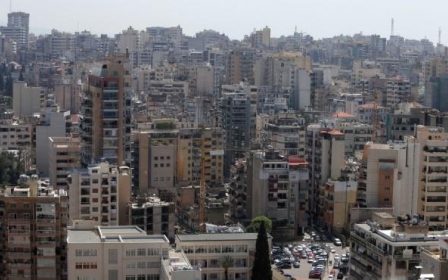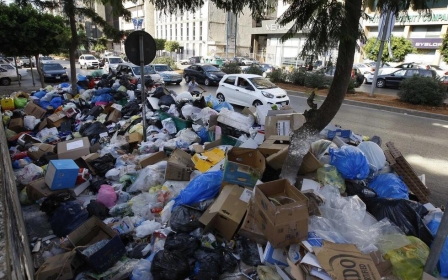ANALYSIS: Can growing pressure make Lebanon’s army reform its military courts?

BEIRUT - Lebanon is not a military state like Egypt, Jordan or Syria. There is no military-industrial complex like in Egypt, where it is estimated to account for about 30 percent of the gross domestic product (GDP). There is also no clear national leader capable of doing publicity stunts with parachute regiments like in Jordan, and there is no military service.
The last two Lebanese presidents aside - who switched their general's uniforms for suits once in office - Lebanese politics has been dominated more by former militia leaders and technocrats than by an elite officer corps with the potential to carry out a coup.
However, a storm is brewing over the extent of the army’s power, and in particular its use of military courts.
On the one hand, the Lebanese Armed Forces (LAF) exerts tremendous power within the country and has long been seen as one of the only neutral bodies in an otherwise heavily fractured state.
According to many activists it has also been able to further expand its influence in recent years thanks to the growing political vacuum that has left the country unable to select a president since May last year. Furthermore, it is having its hard power upgraded through a $3bn arms pledge from Saudi Arabia, which should see its stockpiles updated.
On the other hand, the body is keen to win public approval and has embarked on a soft power offensive, working to rally the populace around the cross-sectarian institution to keep stability amid regional unrest.
Billboards line the country's roads celebrating the army's 70th anniversary with the words Jamaa Moushtarak (Common Unity). In August, a smartphone app was launched, LAF Hero, with one game about territorial defence where the player has to strategically place army check points to nab terrorists.
This dual strategy has left the army open to criticism, touting itself as the defender of the people while at the same time trying citizens through the military court without full legal process, prompting a battle for reform that is currently underway.
Military Justice
Following the sentencing of former minister Michel Samaha to four-and-a-half-years for trafficking explosives in May – the verdict was considered by certain parties to have been politically manipulated as well as too lenient a sentence given his intention to assassinate political and religious leaders - there have been growing calls to reform the military court and the army's judicial power over civilians for any misdemeanor involving military personnel.
For example, under the present legislation, if you let a soldier hitch a ride in your car and there is a traffic accident, the case will be dealt with by the military court. If you get into an altercation with an off-duty soldier over a real estate dispute, or a soldier is busted in a drug-related matter that connects him to a civilian dealer, then the case goes to the military court.
The military court has also been used in recent years against journalists who have been jailed, and to clamp down on Syrian refugees for crimes allegedly linked to national security.
If convicted, the sentenced civilian would go to a military prison and not to the notorious civilian prison of Roumieh.
“It is debatable which is better, the civilian or military prison; it depends on how you see things, whether you want food and a phone brought to the prison or not,” said Paul Morcos, the founder of Justicia, a local legal firm that works on the issue and recently held a workshop alongside the army and international partners on military courts.
While such privileges are not allowed in the military institution, prisoners at Roumieh have famously been able to bribe guards to smuggle in telephones and other gadgets. There have even been reports that jailed militants, belonging to the Fatah al-Islam that fought the military in the Nahr al-Barad Palestinian refugee camp in 2007 - have a dedicated wing to themselves with access to laptops and mobile phones.
Mukhabarat Law
The military court is a hangover from the French Mandate. The last radical reshuffle took place in 1968 and was aimed at containing the mounting leftist and Palestinian movements in the country.
When it was last amended, the law met no opposition in the parliament.
“What do you expect from a law written by the mukhabarat [secret police/intelligence] and ratified by politicians? I think it tells the whole story,” Lokman Slim, founder of local NGO, UMAM, which tries to promote co-existence in Lebanon, told MEE.
There are no statistics on how many cases are handled by the military courts compared to their civilian counterparts. While it is assumed that the civilian courts handle significantly more cases due to its very nature, the dearth of data highlights the lack of transparency within the military judicial process.
While the public and the media are not technically banned from attending certain cases - such as those pertaining to civilians - they cannot physically get to the court because access to the military tribunal building is restricted. Furthermore, many of the military judges lack legal qualifications, being officers seconded to the tribunal from their regimental duties with no background in legal and judicial affairs.
The situation has led law firm Justicia to denounce the army for its “failure to comply with the conditions of a fair trial in terms of transparency [i.e. the rights of defense, explanation of the judgments and public trials], jurisdiction, independence, impartiality and equality among citizens".
Don't change a word
The military has thus far not supported the moves to curtail its powers, arguing that while western countries have disbanded military courts, Lebanon needs such a judiciary as it is at war with Israel.
It also argues that all its neighbours, Syria, Jordan and Egypt have military courts and that all these countries face similar security and terrorism threats. Political moves to change the military judiciary have been repeatedly nipped in the bud.
The army declined MEE’s repeated requests for interview.
“The terrorism threat reinforces the pseudo argument that the military court is the best tool to fight terrorism in Lebanon, but this is countered by these [political] deals with Salafists [in the 1990s and in 2005] and Samaha,” said Andre Sleiman, programme manager of German-funder KAS' Regional Rule of Law Programme.
“The only real attempt to make a change happened under [former Prime Minister Rafik] Hariri [assassinated in 2004] and he was censored, literally - don't touch this, it is none of your business,” said Slim.
Chakib Kortbawi, Minister of Justice from 2011 to 2013, also tried to change the law to restrict the military's jurisdiction to purely military affairs, and failed.
He has since told civil society groups that he faced too much resistance from the establishment and found it difficult to even amend the legislation, let alone scrap it.
Reform or abolish?
Given past failures, supporters of reform have begun talking about a middle path where the military would be allowed certain judicial oversight.
“We are saying, at Justicia, that it is not appropriate to put all the burden on the military courts and the army, as it is often dealing with cases that the military has no interest to be a part of,” said Morcos.
“Our request is to restrict the jurisdiction of the military courts to military staff and related crimes, yet at the same time to not undermine the role of the army. On the contrary, it is in the best interest of the army to get rid of these civilian-related cases.”
Justicia's proposal is to “ensure litigants the right to an independent and impartial judiciary that guarantees them a fair trial through the upholding of civil rights and the conduct of trials in the presence of the defendants, while respecting the rights of the defence and all that it includes with regard to the imperatives of judicial judgement”.
However, the debate itself has been largely censored. “There is freedom of speech on one side, but some feel they can't have an opinion in public out of potential fear of being on the wrong side. Even at our event people were careful about what they would say,” said Peter Rimmele, director of the regional rule of law program at KAS in Beirut.
Some religious and political leaders have been open in their unflinching support for the army. The Maronite patriarchy told the head of the army last month that the army was “the last safe haven for the people”.
That said, there seems to be growing traction for change within the government. In early August, the Justice Minister, Ashraf Rifi, announced at a press conference a draft law to overhaul the military court, prompted by the Samaha case.
The draft law, which has the backing of some 10 politicians, proposes specialised courts to deal solely with terrorism cases, human trafficking and money laundering, as well as crimes “aimed at sowing sectarian discord and civil war in the nation by forming armed gangs”.
If passed, the law would limit the military courts remit to military cases, and introduce a two-stage appeals process that would annul the Judicial Council, which handles cases regarding national security.
But this middle-path also faces challenges from the very people hoping to bring about reform.
“The military court is a tool of domination and control. You can't reverse intimidation gradually – either it goes or not, it is neither a full or half threat,” said Slim. “When you negotiate justice it is no longer justice,” he added, referring to political interference in the military judiciary. “I don't have high expectations [about change], but I must denounce it [the military court].”
New MEE newsletter: Jerusalem Dispatch
Sign up to get the latest insights and analysis on Israel-Palestine, alongside Turkey Unpacked and other MEE newsletters
Middle East Eye delivers independent and unrivalled coverage and analysis of the Middle East, North Africa and beyond. To learn more about republishing this content and the associated fees, please fill out this form. More about MEE can be found here.




